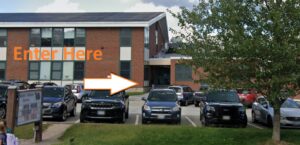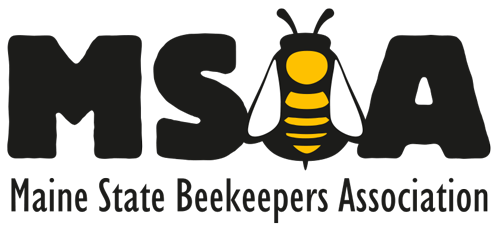Meetings are at 7:00 pm on the first Tuesday of each month September through May
Physical Meetings
In person meetings are held in Gorham at 200 Narragansett Street, in the upstairs meeting room at Moody’s Collision.
Online Meetings
A zoom link will be sent to members on Tuesday evening shortly before the meeting time. Overflow viewing will be available via YouTube live stream. The link will be sent out at the start of the meeting.
Join using the camera and microphone on your phone, tablet, laptop or desktop. All should be muted unless you are speaking. Camera/Video from non-presenters isn’t necessary to be able to listen in and see the presentation.
Folks not presenting should stay muted and ask questions in the chat box that can be read to the presenter by the meeting organizer. Attendees can also click the “raise your hand“ button to be recognized to speak by the presenter or organizer during any Q and A session.
Open to club members and guests, each meeting features a program of interest to beekeepers. Guest requests can be submitted to Lindy.allen350@gmail.com for online meeting access.
2026 Programs
This meeting is via Zoom only!
Some of the topics will be:
When is the best time to raise queen bees?
How to optimize your hive for effective queen rearing.
Equipment needed
Choosing the best colonies.
Grafting and colony raised queens
Cell starters and cell finishers.
Mating nucs
2025 Programs
December 2: ‘Thinking of Your Bees as an Animal’
Phil Gavin, EAS Master Beekeeper & Proprietor of The Honey Exchange.
"A hive of bees is more than just a box of insects doing stuff.
Let's take a look at the colony as a whole animal - the superorganism,
and talk about the role we can play in its success."
Also - The CCBA annual officer vote.
November 4: Winter Condensing Hive Method
Geoff McLean , EAS Master beekeeper, owner of Red Brook Honey
May 6: Biosecurity in the Bee Yard Jennifer Lund State Apiarist
IN PERSON ONLY Moody's (upstairs function room). 200 Narragansett St, Gorham 7:00 PM In this talk Jen will discuss how beekeepers can develop a biosecurity plan for their apiaries with the goal of reducing pest and disease problems.
April 1: Starting Queens Cells with Karen Thurlow
6:30 - 7:00 PM chat/social time/Q&A 7:00 PM business meeting followed by Karen's presentation.
March 4: Beekeepers CSI: Inspecting for Disease
Time: 5:30 PM We will have a brief business meeting then get right into the presentation Place: Mabel Wilson School 353 Tuttle Rd. Cumberland Center (entrance facing Tuttle Rd.) Due to the nature of the hands on workshop, this will be an IN PERSON ONLY meeting.
Feb 4: Desserts and Deadouts
6:30 - 7:00 PM social chat on how hives are doing, enjoy dessert 7:00 PM business meeting (quite a few details) Followed by dead-out and hive autopsy discussions and some short video(s)
Jan 7: Peter Cowin – The Bee Whisperer – speaker via Zoom
6:30-7:00 PM We will open meeting for anyone who wants to have an informal chat and ask questions. 7:00 PM The official start with a quick round of business announcements, then welcome our featured speaker.
2024 PROGRAMS
MAY 7 —- EARLY START —- 6:30 In person only – no ZOOM
May 7 Meeting will be at Mabel I Wilson School in Cumberland. In the multipurpose room we used to meet at. 353 Tuttle Rd, Cumberland Center, ME 04021 
May 7: Carolyn Nichols (Sagadahoc Beekeepers) – Hands on Beekeeping “CSI” presentation
Apr 2: Jenn Lund – Hybrid meeting – The Buzz 101: Common Beekeeping Questions and Answers
Beekeepers ask lots of great questions. During this talk, Jen will discuss some of the most common honey bee management questions she gets asked as the Maine State Apiarist.
2023 Programs
April 7th, Seasonal Management for Successful Overwintering – Jen Lund in person, and via zoom
March 9th, Organic Honey Bee Colony Management – Dr. Robyn Underwood MSBA Webinar. In person at Moodys for a group viewing, or via zoom link which will be sent out that day to CCBA members
March 7th, 7pm – Business meeting. via zoom
February 7th, 7pm – David T. Peck, Ph.D. via zoom
Your Bees in Winter and Getting Ready for Spring
Meeting recording
What are your honey bees up to in February, and what should you be doing to help your bees this time of year? And how should you prepare for spring beekeeping, whether you’re a new beekeeper who is just getting ready to purchase bees, or an experienced beekeeper who is excited to see what your bees will do in the coming year? We’ll explore all this and more in a presentation about winter beekeeping tasks.

Dr. Peck is the Director of Research and Education at Betterbee in Greenwich, NY, where he assists in product development and research, and also teaches classes and develops scientifically-sound educational materials. His doctoral work in Cornell University’s Department of Neurobiology and Behavior was supervised by Professor Tom Seeley. His dissertation research focused on the transmission of mites between bee colonies, as well as the mite-resistance traits of the untreated honey bees living in Cornell’s Arnot Forest.
After earning his degree, he has continued to research varroa/bee interactions, including fieldwork in Newfoundland, Canada (where varroa still have not arrived) and Anosy Madagascar (where varroa arrived only in 2010 or 2011). He has served as a teaching postdoctoral fellow in Cornell’s Department of Entomology, and is still affiliated with Cornell through the Honey Bee Health program in the College of Veterinary Medicine. Dr. Peck has kept bees for more than a decade, though his home apiary is often full of mite-riddled research colonies so he doesn’t usually produce much honey.
2022 Programs
June 7: (ZOOM Only) Joe Wolanski from Panther Pond produced more honey than expected over his first season. With the extra honey Joe has learned how to make Mead and would like to share his experience with you. In this 1-hour presentation, Joe will walk you through a step-by-step live demonstration on how to make your own semi-dry Mead.
May 3: Karen Snyder (BSIE, MSIE, MBA, AOLCP, and Portland Pesticide Management Advisory), and CCBA club member.
Zoom virtual presentation, and in person meeting at Moody’s in Gorham
The status of pesticide regulations on federal, state, and local level. Also shown how to find pertinent pesticide information such as toxicity to biodiversity, organic substitute, etc.
April 5th: Mike McNally Maine Master Beekeeper from the Sagadahoc Club will speak on his own techniques of spring management .
March 1st : Master Beekeeper Karen Thurlow
Tips on Spring and Summer Management
March Business Meeting link March Business meeting
March Speaker; Karen Thurlow – Karen Thurlow @ CCBA March 2022
February 1st: Jennifer Lund, Maine State Apiary Inspector
The Three Focuses of Successful Beekeeping. This talk will focus on the three things every beekeeper needs to focus on (or worry about) in order to be a successful beekeeper.
If weather permits , Jen will be open to coming down to the meeting spot but as a backup will be ok with a ZOOM meeting as well.
2021 Programs
December 7: Hybrid meeting, in person and via Zoom. Topic this month is a simple Q&A and reflection conversation with Master Beekeepers.
November 2: Zoom Meeting – Erin Posthumus, USA National Phenology Network.
As a beekeeper, you are familiar with closely watching the seasonal activity of your bees. The study of seasonal activities of plants and animals, and their relationship to climate and other abiotic variables, is called phenology. Phenology is a powerful tool for understanding climate change impacts, mismatches between plants and pollinators, and much more. In this presentation, the USA National Phenology Network’s Erin Posthumus will describe how you can get involved in recording the plant and animal seasonal activity you observe in Nature’s Notebook. The data that you report are used by researchers, resource managers, and the public to better understand seasonal change.
Erin Posthumus
Outreach Coordinator & Liaison to the USFWS
USA National Phenology Network
University of Arizona
www.usanpn.org
October 5: Zoom Meeting with Randy Oliver of Scientific Beekeeping “Understanding how European honey bees manage to survive cold winters, and how beekeepers can help them to do so.”
ScientificBeekeeping.com
September 7: Zoom Meeting – Karen Thurlow on Fall Management
August 3: Zoom Meeting – Isaac Lisle, Pollinator Partnership – Mite-A-Thon
July 6: Zoom Meeting – Lincoln Sennett from Swan’s Honey
June 1: Zoom Meeting – Erin Forbes, Primer on Making Overwintering Nucs
May 4: Zoom Meeting – Kim Flottum, The 10 Rules of Modern Beekeeping is sort of a summation of more than 40 years of mistakes, learning curve situations and experiences with bees and beekeepers all over the world that Kim has picked up as Editor, beekeeper, traveler and writer. From good queens to bee yard safety to pest management to wintering well, he summarizes much of what beekeepers should be aware of to be successful in their ventures.
Kim worked as Editor for Bee Culture magazine for over 30 years. He’s written several beekeeping books during that time, ranging from the very new beginner’s Backyard Beekeeping, to In Business With Bees, on starting and running a beekeeping business. After retiring, he and a friend started a podcast company, and now have 3 programs running. Beekeepingtodaypodcast.com is with his friend Jeff Ott, and is just starting their fourth year, with over 150 programs on the web site. Kim and Jim Tew started one under this umbrella several months ago called www.BeekeepingObscura.com, where Kim and Jim join up once a week to talk about some beekeeping subject, problem or adventure they find interesting. Kirsten Traynor, Manager of the Beekeeping Institute in Celle, Germany, works with them on a program called 2MillionBlossoms.com where she talks to a wide range of honey bee and pollinator experts.
April 6: Zoom Meeting – Julia Mahood, Georgia Master Beekeeper and 2018 Georgia Beekeeper of the Year. Julia will be presenting on finding drone congregating areas. Here is a link to much more on her website https://mapmydca.com
March 2: Zoom Meeting – Jennifer Lund, Maine State Apiarist and Bee Inspector. She will be discussing the ins and outs of the dreaded Hive Autopsy, followed by some more uplifting topics of tips on spring management and a brief on how and where to license and register your hives.
February 2: Zoom Meeting – Round table discussion
February 2021 CCBA business meeting and Round Table discussion recording
January 5: Webex Meeting – Geoff MacLean will be doing a book review of Mel Disselkoen’s OTS Queen Rearing-Self Sufficient Beekeeping Strategies of Novice and Expert Alike
January Meeting recording
2020 Programs:
December 1: Webex Meeting – Election of Club Officers and Karen Thurlow on Splitting Hives
Karen’s Talk recording
November 3: Webex Meeting – Jane Dunstan on Winter Bees, pre-recorded webinar
October 6: Webex Meeting – Jen Lund on Strategies for successful overwintering
Jen Lund speaking at October meeting CCBA Overwintering Strategies recording,
passcode 95dU8vnm
May 5: Zoom Meeting – Pat Hurley, Mite treatments in Maine Beekeeping.
Pat just finished up his senior thesis on mite treatments in Maine beekeeping that involves a research project with Lincoln Sennett, Maine beekeeping survey results, and some outreach to other bee clubs in Maine. He is happy to share his research, as the whole goal was to be involved with the Maine beekeeping community.
Apr 7: Zoom Meeting – Thalassa Raasch spoke about Rooftop Beekeeping
Apr 7: No physical meeting due to Pandemic.
Mar 3: Erin Forbes
Feb 4: Neal Kober of Betterbee and Humble Abodes. Comb Honey
Jan 7: Potluck, Election of Officers, Q & A

